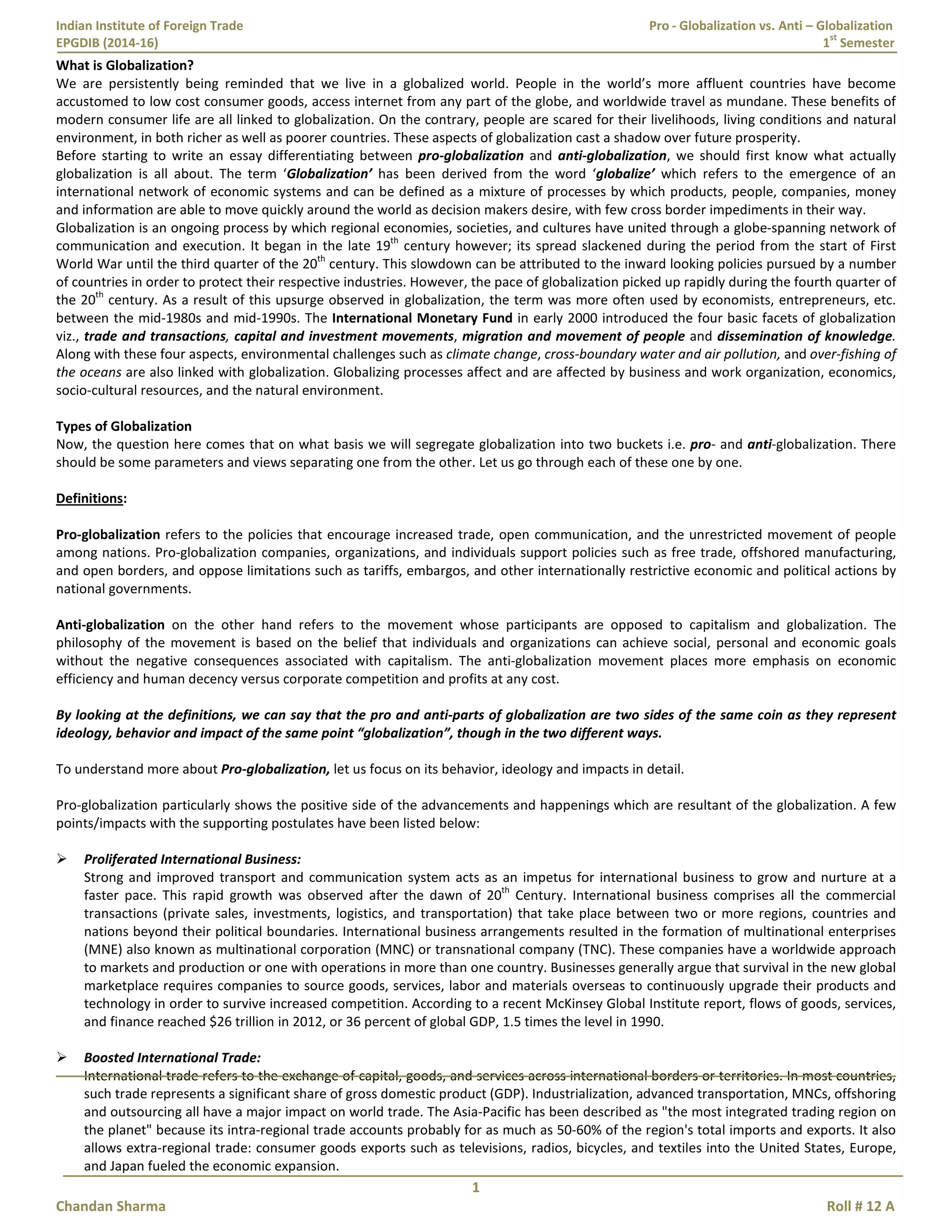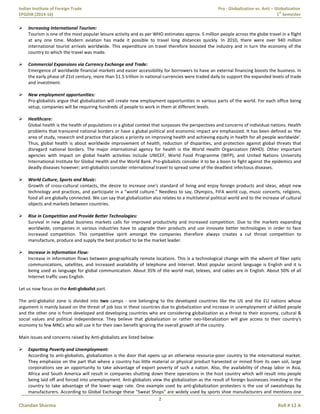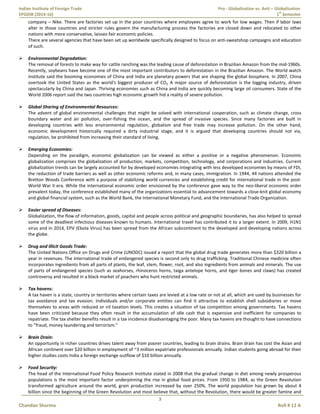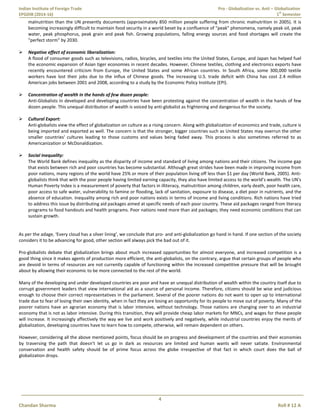The document discusses globalization, defining it as the process by which economies, societies, and cultures integrate globally, characterized by increased trade, capital flow, and migration. It contrasts pro-globalization, which advocates for open trade and movement, with anti-globalization, which opposes the negative impacts of capitalism and corporate dominance. Key issues include the benefits of international business and trade versus concerns about job loss, environmental degradation, and social inequality associated with globalization.



